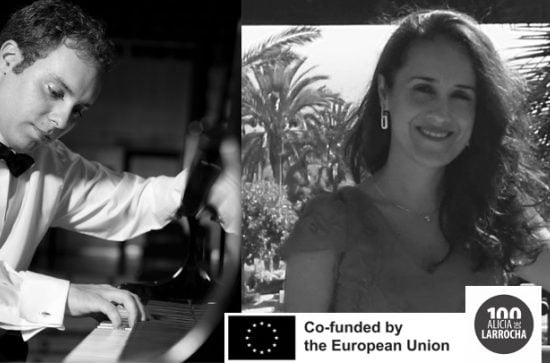
GOYESCAS: STUDY OF THE ARTISTIC RELATIONSHIP BETWEEN MUSIC AND PAINTING
The piano suite Goyescas: los majos enamorados is Enrique Granados’s most important composition. Evidence for this claim is found in the composer’s own notes: “I have finally had the pleasure to find something big: ‘Las Goyescas’; ‘Los majos enamorados’, those have come a long way.” The work’s great technical demands and its elevated expressive power have transformed it into one of the most respected pieces in the Spanish piano repertoire.
The suite consists of six pieces split in two volumes (1912-14) and is inspired in Francisco de Goya’s times and oeuvre. Granados later produced the suite as a staged work, the one-act opera Goyescas, in order to reflect more clearly and directly each of the aspects depicted in Goya’s works: a thematic narrative, characters, scenery, atmosphere, as well as some specific clothing. In this light, the piano suite Goyescas is a complex artistic work produced by the Catalan composer that relates the visual arts, poetry, and music, all against a Spanish backdrop.
This presentation explores the work’s extra-musical context between two kinds of art and epochs. Making use of our imagination and technological advancements, we will be guided towards a complete understanding and enjoyment of Goyescasfrom another perspective, geared toward performers, instructors, musicologists, and music lovers alike.
BIOGRAPHIES
José María Curbelo González
Born in Gran Canaria (Spain), José María Curbelo is an experienced concert pianist and piano professor at the Conservatorio Superior de Música de Canarias (CSMC). Awarded in several national and international piano and chamber music competitions, he specialized in the performance of Spanish music as a student of pianists Alicia de Larrocha and Carlota Garriga in Barcelona. He has toured in Spain, the U.S., Argentina, Chile, Mexico, The Netherlands, Austria, Poland, Italy and Luxembourg and has played as soloist with several orchestras.
He has been invited to give lectures and masterclasses at Conservatories and Universities in Europe and the USA such as HKU Utrechts Conservatorium (The Netherlands), A. Bruckner Privatuniversität (Austria), Universidad de Barcelona (Spain), Foundation for Iberian Music CUNY, Harvard University and University of Utah (USA), Akademia Muzyczna in Krakow and Poznan (Poland), Music Conservatories in Novara, Trieste and Como (Italy), University of Ljubljana (Slovenia). He has also presented papers at conferences and has authored research articles related to Spanish composers in the international journals “Música y Educación”, “Diagonal: an ibero-american music review”, and in the report “Reshaping Hispanic Cultures of Observatory of the Spanish language and Hispanic Cultures” among other publications. He is also the main coordinator of the Department of International Relations at CSMC, managing the European exchange program Erasmus+ and works as an expert for the Spanish Service for the Internationalization of Education (SEPIE).
Ariadna Martín Alfaro
Ariadna Martín holds a degree in Piano Pedagogy and has completed a postgraduate degree in Music Education. Interested in the field of music business, her studies include degrees in Management of Cultural Institutions, Business Administration and Management, Cultural Policies and Taxation from Barcelona University, The Universitat Oberta de Catalunya and the University of Gran Canaria.
She has taught mainly at the University of Gran Canaria and at the Conservatorio Superior de Música de Canarias. Her endeavours on behalf of Spanish Music have led her to publish for Harvard University-Observatorio Instituto Cervantes and University of California Riverside among others. Besides, she has been a guest lecture in numerous universities in Europe (Spain, Austria and Slovenia) and the U.S. (Cuny Graduate Center and University of Utah). In the field of cultural management, she has developed a sustainability project for cultural organizations with strategic lines of action and management tools that respect the environment.
In addition to her teaching activity, she currently runs different music projects and has founded a Music Festival with leading musicians and dancers. She has also worked for several international institutions evaluating educational, cultural and research projects and is member of the International Academy of Performing Arts and Sciences.
